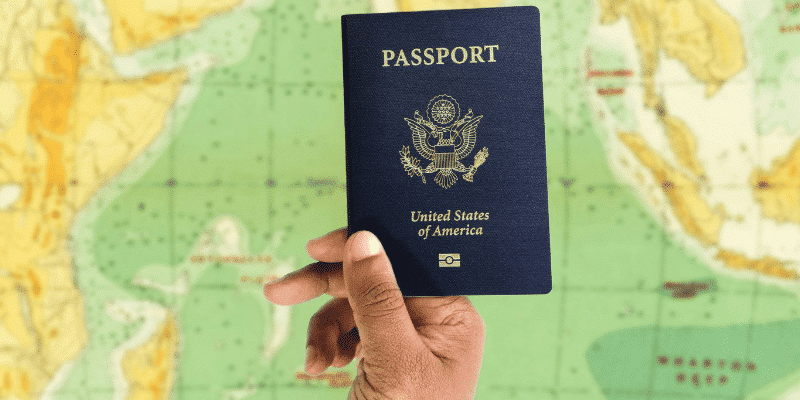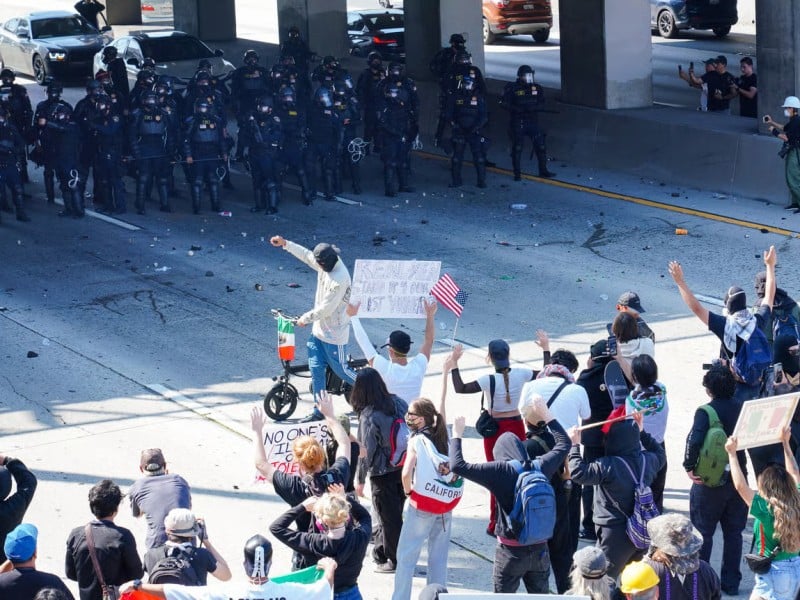Unpacking the Birthright Debate: Is Citizenship by Birth Under Threat?
What is birthright citizenship, can it be easily repealed, and what are the implications for the U.S. Latino community?

Updated on January 21, 7:30 a.m. PT.
Birthright citizenship—a cornerstone of American identity—has become the subject of intense national debate as President-elect Donald Trump carries out his promise to end it by signing an executive order shortly after taking office on January 20, 2025. This principle, guaranteed by the 14th Amendment of the U.S. Constitution, grants automatic citizenship to nearly all individuals born on American soil, regardless of their parents’ immigration status or nationality. As Trump’s plans take shape, they raise pressing questions about the future of inclusivity, equality, and the rights of millions, especially within the Latino community.
What Is Birthright Citizenship?
Established in 1868 after the Civil War, birthright citizenship was designed to ensure newly freed Black Americans and their descendants could claim full citizenship. It guarantees that “all persons born or naturalized in the United States, and subject to the jurisdiction thereof,” are recognized as U.S. citizens.
Over the past 150 years, this principle has been upheld by the courts, most notably in the 1898 Supreme Court case United States v. Wong Kim Ark. This landmark ruling established that children born to immigrant parents in the U.S. are citizens, making birthright citizenship a bedrock of American law from that day forward.
While exceptions exist—such as children of foreign diplomats—birthright citizenship is a vital safeguard, ensuring that no child born in the U.S. becomes stateless. In a global context, this policy is rare, found primarily in the Americas, and aligns the U.S. with international human rights principles.
Trump’s Plan to End Birthright Citizenship
President-elect Trump views birthright citizenship as a loophole that enables unauthorized immigration. His plan centers on issuing an executive order, which he signed on January 20, 2025, and will take effect in 30 days, to redefine the criteria for automatic citizenship. Trump and his supporters argue that the phrase “subject to the jurisdiction thereof” has been misinterpreted for decades and doesn’t extend to children of undocumented immigrants. The administration’s ultimate goal is to bring the issue before the Supreme Court, potentially overturning over a century of legal precedent.
Under Trump’s executive order, children born in the U.S. only qualify for citizenship if at least one parent is a U.S. citizen or permanent resident. This excludes children born in the U.S. to parents who are undocumented, on temporary visas, or awaiting permanent residency. The executive order directs federal agencies to withhold recognition of U.S. citizenship for these children, effectively denying them passports, Social Security numbers, and other essential documentation.
Amanda Frost, a professor at the University of Virginia, noted to The Financial Express: “The President cannot simply change the 14th Amendment through an executive order. The legal consensus is that this effort will fail in court.” This sentiment is echoed by many legal scholars who believe that changing birthright citizenship would require a constitutional amendment, not just an executive order.
This policy shift is already facing legal challenges, as it directly conflicts with long-standing interpretations of the 14th Amendment. Civil rights groups assert that the order violates constitutional protections. Some of them, including the ACLU, have filed lawsuits challenging the constitutionality of the order.
How Would This Impact Latinos?
For the Latino community, the consequences of eliminating birthright citizenship would be far-reaching. Latinos make up approximately 19.5% of the total U.S. population as of 2023, a significant number, and generationally, they have relied on birthright citizenship as a road to full integration into American society. The exception to this is descendants of native Mexicans who became U.S. residents and citizens after the Treaty of Guadalupe Hidalgo, which ended the Mexican-American war in 1848.
If birthright citizenship were repealed, Latino communities, which accounted for 71% of the overall growth of the U.S. population in 2023, would be disproportionately affected by it. Families and people already navigating complex immigration systems would now have to navigate additional layers of currently unknown bureaucracy.
Without birthright citizenship, future generations of Latinos born on U.S. soil could find themselves stateless. Latino children without citizenship would lack the same access to education, healthcare, and other basic services. They wouldn’t be able to legally work, drive, open bank accounts, or even register the births of their own children. These are the building blocks of a secure and stable life, and without them, surviving in the U.S. would become immediately arduous.
This policy change would also hit certain groups harder than others. According to the Pew Research Center, Mexico remains the leading country of origin for immigrants in the U.S. As of 2022, approximately 23% of the total U.S. immigrant population was made up of Mexicans. Latin America, excluding Mexico but including the Caribbean, Central America, and South America, accounted for 27% of the total U.S. immigrant population, meaning the fallout would overwhelmingly affect those communities.
Beyond the numbers, the social stigma and discrimination tied to being “unauthorized” could deepen. Latina women, in particular, could face increased marginalization as they try to navigate a system that denies their children basic rights based on their immigration status.
The impact on identity and belonging can’t be understated either. Birthright citizenship has always been a way for immigrant families to have a place in American society. Taking that away from Latino children born here would most certainly leave them feeling disconnected—from the U.S., where they were born, and from their parents’ countries of origin, which they might not even know. Such a change would undermine the idea of the U.S. as a nation that welcomes and integrates immigrants.
The Stakes for America
Ending birthright citizenship wouldn’t just change the law; it would upend lives, divide families, and reshape what it means to be an American. The Latino community would bear the brunt of this change, but the ripple effects would be felt across the nation and in all immigrant communities, challenging the ideals and principles of inclusion that have defined the U.S. since its founding.
Advocates for preserving birthright citizenship argue that doing so is essential for fostering social cohesion and ensuring the U.S. remains inclusive. The Latino community has long been a cornerstone of the nation’s cultural and economic fabric.
If the Trump administration is successful in repealing birthright citizenship, it will fundamentally impact not only the lives of millions of Latinos but also the broader trajectory of America’s identity and values. The coming legal and political battles will ultimately determine if this becomes a pivotal moment in history for the U.S.




